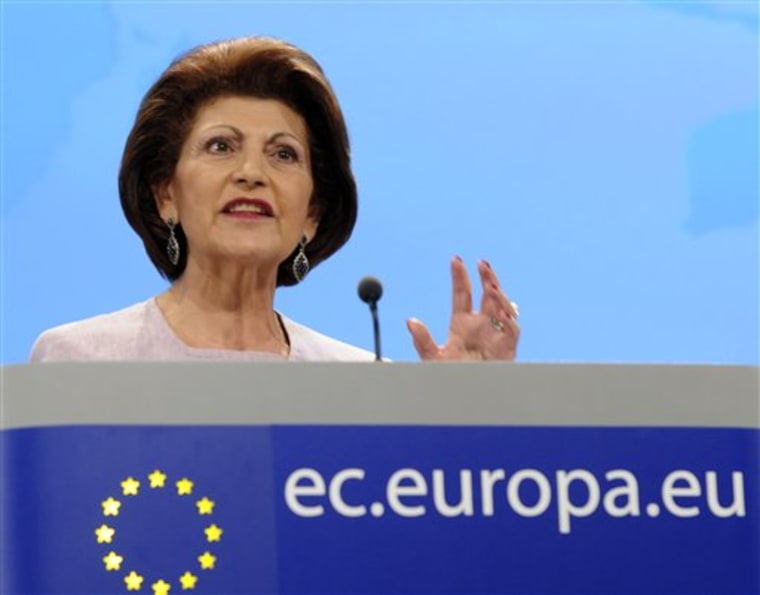Pregnant women, health workers and people with risky health conditions will be the first to receive swine flu vaccinations, according to an agreement reached Friday by the world's seven largest economies and Mexico.
The Group of Seven countries will offer the first vaccine doses to the identified "risk groups, and then if we have more vaccine available, then we proceed with other groups," EU Health Commissioner Androulla Vassiliou said.
The G-7 countries and Mexico held the daylong talks at European Union headquarters to discuss swine flu measures as the flu season approaches the northern hemisphere. Vassiliou said swine flu, also called H1N1, has become the world's "dominant influenza virus."
Swine flu has caused at least 3,205 deaths since it emerged in Mexico and the United States this year and became a global epidemic, the World Health Organization said. Most deaths have been in the Western Hemisphere.
People considered at high risk for serious complications from swine flu include pregnant women, children younger than 5 and people with certain chronic conditions such as asthma and heart disease, according to the U.S. Centers for Disease Control and Prevention.
Swine flu vaccines in development could be available soon, officials said.
"We may only need one dose of vaccine at least for adults, and trials for children and other populations are still ongoing," said Dr. Nicole Lurie, assistant secretary for preparedness and response at the U.S. Department of Health. "This means the limited supply of vaccines should be able to go much further than what we had really hoped and anticipated."
Health officials participating in Friday's meeting agreed to share data and coordinate action when vaccines are rolled out this year.
The seven rich nations — Canada, Japan, Germany, France, Italy, Britain and the U.S. — as well as the European Union also "unanimously agreed" to help developing nations combat the virus.
Sweden, which now holds the EU presidency, and Spain, which will next, also took part in Friday's talks.
Meanwhile, the World Health Organization advised that schools deciding to close because of a swine flu outbreak should do so at an early stage to slow transmission of the virus.
Studies suggest "that school closure has its greatest benefits when schools are closed very early in an outbreak, ideally before 1 percent of the population falls ill," a WHO statement said. This can result in 30-50 percent fewer people needing health care at the peak of a global outbreak, it said.
Experts say school closures do not reduce the number of cases, but just spread them over a longer period. The United States and Britain plan to keep schools open except under exceptional circumstances.
